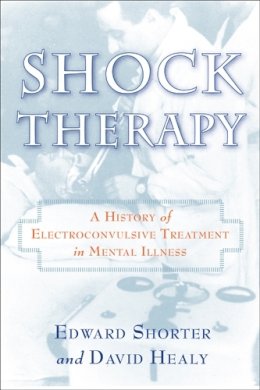
Stock image for illustration purposes only - book cover, edition or condition may vary.
Shock Therapy: A History of Electroconvulsive Treatment in Mental Illness
Edward Shorter
€ 60.04
FREE Delivery in Ireland
Description for Shock Therapy: A History of Electroconvulsive Treatment in Mental Illness
Paperback. Num Pages: 382 pages, black & white halftones, figures. BIC Classification: MBX; MMH. Category: (G) General (US: Trade). Dimension: 229 x 156 x 18. Weight in Grams: 530.
Shock therapy is making a comeback today in the treatment of serious mental illness. Despite its reemergence as a safe and effective psychiatric tool, however, it continues to be shrouded by a longstanding negative public image, not least due to films such as the classic One Flew over the Cuckoo's Nest, where the inmate of a psychiatric clinic...
Read moreProduct Details
Format
Paperback
Publication date
2013
Publisher
Rutgers University Press
Number of pages
382
Condition
New
Number of Pages
398
Place of Publication
New Brunswick NJ, United States
ISBN
9780813554259
SKU
V9780813554259
Shipping Time
Usually ships in 7 to 11 working days
Ref
99-50
About Edward Shorter
EDWARD SHORTER is the Jason A. Hannah Chair of the History of Medicine at the University of Toronto. He is the author of numerous books, including A History of Psychiatry and Before Prozac. DAVID HEALY is a professor of psychiatry in the department of psychological medicine at Cardiff University and the author of numerous books, including Let Them Eat Prozac....
Read moreReviews for Shock Therapy: A History of Electroconvulsive Treatment in Mental Illness
"Shock Therapy is based on contemporary research that includes both manuscript and printed sources as well as interviews with individuals who have played key roles in the history of ECT. It is a controversial work, if only because its authors combine both historical analysis and advocacy. Nevertheless, the book—which includes discussions of such contemporary therapeutic innovations as VNS, DBS, and...
Read more